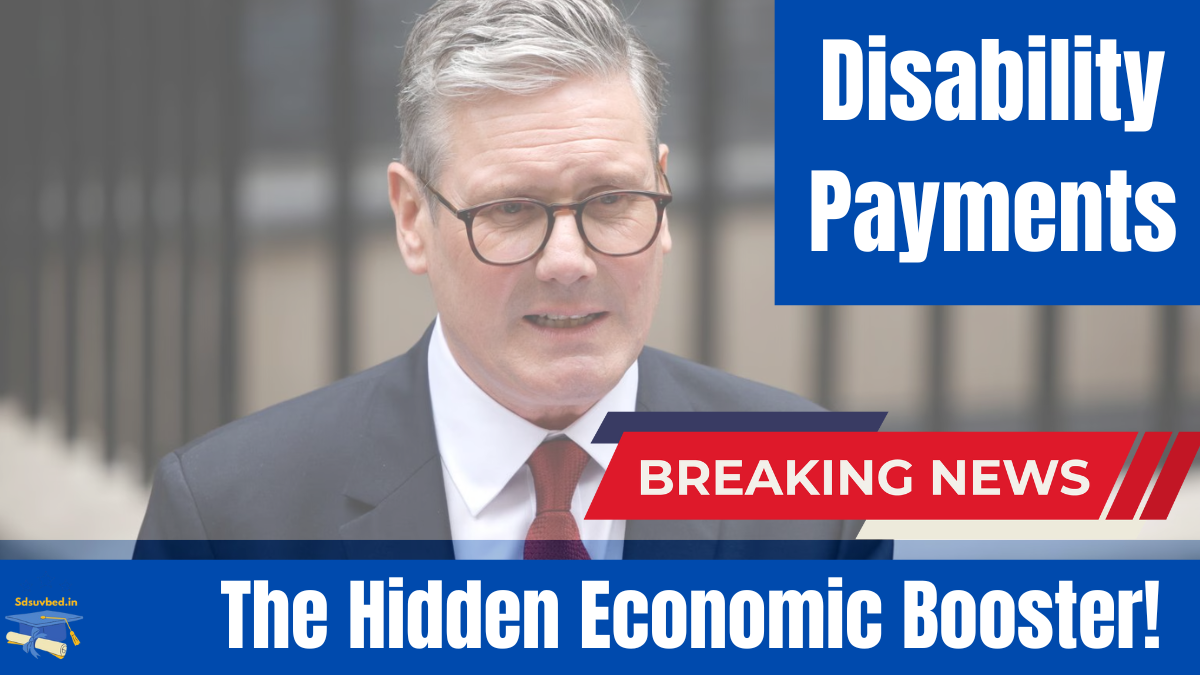Disability benefits, including Personal Independence Payment (PIP), play a crucial role in the economic and social well-being of millions of people. While the government aims to cut welfare costs, new research from Pro Bono Economics suggests that disability benefits generate more value than their cost, ultimately benefiting the economy.

What Did Economists Find About the Impact of PIP?
A study by Pro Bono Economics reveals that disability benefits improve mental well-being and life satisfaction beyond just financial support. Treasury guidance assigns a monetary value to well-being, estimating that receiving disability benefits adds £12,300 per person in economic value.
With around 3.5 million people claiming PIP, the total economic benefit of these payments is estimated at £42 billion annually—significantly higher than the £28 billion cost of administering the program.
This means that for every £1 spent on disability benefits, the return is £1.48 in economic benefits due to improved well-being, health, and social inclusion.
Why Are Disability Benefits More Than Just Financial Aid?
Disability benefits do more than provide financial relief. They help claimants:
- Offset the extra living costs associated with disabilities
- Improve mental health and well-being by reducing stress and financial anxiety
- Encourage social inclusion by enabling participation in community activities
- Reduce loneliness, which is disproportionately high among disabled individuals
- Increase independence, allowing recipients to manage their daily lives more effectively
What Are the Government’s Plans for Disability Benefits?
The UK government, under Labour leadership, has pledged to cut the welfare bill, with a focus on getting more disabled individuals into work. Labour leader Keir Starmer has emphasized reducing what he calls a “bulging benefits bill”.
However, experts warn that cutting disability benefits could backfire, leading to:
- Increased mental and physical health issues among claimants
- Higher NHS costs due to worsened health outcomes
- Greater barriers to employment, as individuals may struggle without financial support
- More economic strain, rather than savings, due to reduced social participation and workforce engagement
How Could Disability Benefit Reforms Improve the System?
Economists argue that simplifying the claims process would enhance the effectiveness of disability benefits. Pro Bono Economics’ chief executive, Matt Whittaker, suggests that reforms should aim to:
- Reduce bureaucratic hurdles, making applications easier for claimants
- Ensure faster processing times, avoiding delays in essential payments
- Expand eligibility for those in need, rather than restricting access
- Work with charities and support groups, such as Z2K, to improve claimant experiences
MUST READ: Seven Major Money Changes in February 2025: Pensions, Savings And Energy Bills
Why Are Disability Benefits an Investment in Economic Growth?
Instead of viewing disability benefits as a financial burden, experts argue they should be seen as an economic investment. According to Ayla Ozmen, policy director at Z2K, the government should focus on the long-term benefits of these payments, including:
- Reduced demand for healthcare services, as financial security improves well-being
- Higher workforce participation, with more disabled individuals able to engage in employment
- Economic stimulation, as disability benefits increase consumer spending in essential sectors
- Social benefits, such as reduced isolation and increased civic engagement
FAQs
How do disability benefits like PIP contribute to the economy?
Disability benefits improve mental health, independence, and social engagement, leading to economic benefits that exceed their cost.
How much does the UK spend on disability benefits each year?
The UK government spends approximately £28 billion annually on disability benefits.
What is the estimated economic benefit of disability benefits?
Economists estimate that PIP and similar benefits generate £42 billion in economic benefits annually.
What happens if disability benefits are cut?
Reductions in disability benefits could lead to higher healthcare costs, increased unemployment, and worsened mental health among claimants.
How do disability benefits reduce loneliness?
PIP enables recipients to participate in social activities, reducing isolation and psychological distress.
Are disability benefits an economic burden?
No, studies suggest that for every £1 spent on disability benefits, there is a £1.48 economic return.
What are experts recommending for disability benefits?
Economists and charities suggest simplifying the claims process, maintaining funding levels, and improving access to support more disabled individuals.
How can the government improve disability benefits?
By reducing application complexity, expanding eligibility, and working with charities, the government can make disability benefits more effective.
Conclusion
Despite government plans to cut welfare spending, disability benefits like PIP contribute significantly to the economy. Research shows that these payments improve well-being, reduce loneliness, and stimulate economic growth, offering a £1.48 return for every £1 spent. Instead of reducing support, policymakers should view disability benefits as an investment in social and economic well-being.
Click here to know more.
A passionate content writer specializing in creating engaging, SEO-optimized content. With expertise in blogs, web copy, and storytelling, I craft words that connect with audiences and deliver results.
